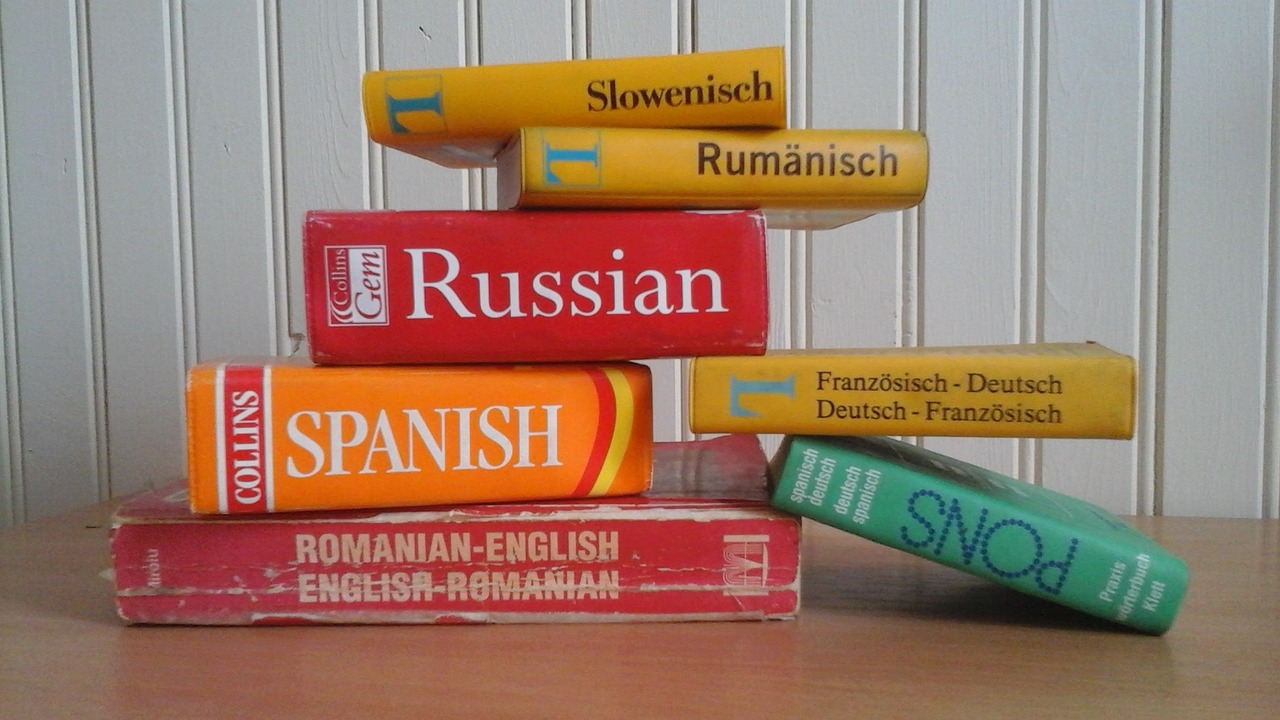Hola! Bonjour! Ni hao! Learning a new language isn’t just about expanding your vocabulary; it’s a gateway to a world of opportunities and incredible advantages. Whether you’re drawn to the melodious sounds of Spanish, the poetic elegance of French, or the intricate characters of Mandarin, mastering a new language can bring an abundance of fun, fulfillment, and personal growth. So, grab your language learning hat and let’s embark on a thrilling journey into the marvelous benefits of becoming multilingual!
Benefits of Learning a New Language
Cultural Immersion
Learning a new language is like stepping into a cultural wonderland. Immerse yourself in the traditions, literature, music, and cuisine of the language you’re mastering. By doing so, you gain a profound appreciation for different cultures and develop a broader perspective of the world. Get ready to savor new flavors, dance to captivating rhythms, and connect with people on a deeper level.

Communication Superpowers
Imagine the thrill of effortlessly conversing with people from diverse backgrounds. Learning a new language grants you the superpower of effective communication. It opens doors to exciting connections, both personally and professionally. Whether you’re traveling, building international relationships, or expanding your career prospects, being able to express yourself in someone else’s mother tongue creates bridges and fosters understanding.
Mental Gymnastics
Learning a new language isn’t just a linguistic feat; it’s a mental workout for your brain. Numerous studies have shown that language learning improves cognitive abilities, enhances memory, and even boosts creativity. As you master grammar rules, tackle pronunciation challenges, and expand your vocabulary, your brain becomes sharper, more adaptable, and adept at problem-solving. It’s like having a mental gym membership with a bonus of linguistic skills!
Cultural Sensitivity and Empathy
Language is deeply intertwined with culture. When you dive into a new language, you gain a profound understanding of the customs, values, and perspectives of its speakers. This cultural sensitivity cultivates empathy, helping you develop a greater appreciation for diversity and fostering inclusive interactions. Learning a new language expands your world and enables you to connect with people from all walks of life.
Travel with Confidence
Say adiós to language barriers and bonjour to immersive travel experiences! Learning a new language equips you with the confidence to explore new destinations with ease. Ordering food, asking for directions, and engaging in conversations with locals become exciting adventures rather than daunting tasks. As you navigate foreign lands with linguistic finesse, you’ll uncover hidden gems and create unforgettable memories.
Flexibility and Adaptability
Learning a new language hones your ability to adapt to new situations and think on your feet. Language learners become skilled at finding creative solutions, understanding nuances, and adjusting their communication style to fit different contexts. These valuable traits transcend language learning and positively impact various areas of life, from problem-solving in everyday situations to thriving in multicultural environments.
Personal Growth and Resilience
Mastering a new language is a testament to your determination and perseverance. It’s a journey that requires dedication, practice, and resilience. As you overcome challenges, embrace the joy of progress, and celebrate milestones, you develop a growth mindset that extends beyond language learning. You become more confident, resilient, and open to new opportunities and experiences.
Best Way to Learn a New Language
Learning a language doesn’t have to be a monotonous grind. It can be an exhilarating adventure filled with joy, discovery, community and personal growth. Inject a dose of fun into your language learning routine with these tips and tricks!
Embrace Language Learning Apps
A great way to start is to take advantage of language learning apps that provide interactive and gamified lessons. Apps like Duolingo, Babbel, and Memrise offer engaging activities, vocabulary drills, and challenges that make learning a new language feel like a playful game. Set aside a few minutes each day to conquer levels, earn badges, and track your progress. If you are learning with a family, practice together so that you are learning the same words and can incorporate them into your conversations. Learning has never been this fun!
Immerse Yourself in the New Language
Immerse yourself in the language and its culture! Surround yourself with authentic materials like movies, music, podcasts, and books in your target language. Libraries and Amazon offer many of these items in the language that you are trying to learn. Some can be specific to learning a new language and others are just in the target language to increase your exposure. Dive into the vibrant tapestry of the language, savor its flavors, and let the melodies of the native speakers transport you to far-off lands. Immerse yourself and let the language become a natural part of your daily life.
The World is Your Classroom
One of the beauties of learning a language as a hobby is that you can do it anytime, anywhere. Transform your daily commute, work out, or a road trip into a language learning session by listening to podcasts or audio lessons. Label objects around your home with vocabulary words. Join online language communities or find language exchange partners to practice conversation skills. Instead of just scrolling through social media, use these platforms to follow influencers in other languages, especially those with an intent to teach! The world becomes your classroom, and every interaction becomes an opportunity to learn.
@talkthestreets Reply to @hio9525 Que outras respostas usas? 🇵🇹 #europeanportuguese #português #auladeportuguês
Find a Language Learning Buddy
Learning a language is more enjoyable when you have a partner in crime. Find a language learning buddy or join language exchange communities to practice conversational skills with native speakers. Language exchange platforms like Tandem, HelloTalk, or iTalki connect language learners worldwide, enabling you to engage in meaningful conversations, cultural exchanges, and mutual learning.
Bring Language Learning to Life
Learning a language isn’t confined to textbooks and grammar exercises. Bring the language to life by role-playing, acting out dialogues, or even creating your own stories. Organize language-themed events or movie nights with fellow learners to practice speaking and immerse yourself in the linguistic landscape. The more you engage with the language, the more fun and effective your learning experience becomes.
Travel and Language Immersion
What better way to learn a language than by traveling to a country where it’s spoken? Immerse yourself in the local culture, interact with native speakers, and practice your language skills in real-life situations. Practicing the language in a restaurant with a native speaker can be such a memorable experience and a great way to learn additional phrases! Language immersion programs or homestays offer unique opportunities to live and learn in an immersive environment, enabling you to make rapid progress and create lifelong memories.

Make Learning Languages a Multisensory Experience
Engage multiple senses in your language learning journey. As we mentioned, listening to podcasts or audiobooks can help to train your ears to the rhythm and intonation of the language. In addition, watching movies, TV shows, or YouTube channels can improve your comprehension skills and familiarize yourself with colloquial expressions. Write, draw, or create flashcards to reinforce vocabulary retention. The more senses you involve, the more memorable and enjoyable the learning process becomes.
Gamify Your Learning
Turn language learning into a game by using gamification techniques. Challenge yourself with language puzzles, crosswords, or online quizzes. Create rewards and milestones to celebrate your achievements. Incorporate language learning apps with built-in game elements, such as leaderboards or progress trackers, to make your learning experience more interactive and motivating.
Celebrate Cultural Festivals
Learn about the cultural festivals and celebrations associated with the language you’re learning. Participate in language-specific events or cultural gatherings to experience the customs, traditions, and cuisine firsthand. Join language clubs or meetup groups to connect with fellow language enthusiasts and celebrate the vibrant tapestry of cultures.
Embrace the Journey
Language learning is a marathon, not a sprint! Above all, embrace the journey and remember that every step counts. Celebrate your progress, no matter how small, and have patience with yourself. Learning a language takes time, practice, and consistency. Set realistic goals, create a study routine that works for you, and surround yourself with supportive resources and like-minded language enthusiasts.
FAQs
How long does it take to learn a new language?
There is no one-size fits all answer for this one. The time required to learn a language varies from person to person. Factors such as language similarity to your native tongue, your dedication to studying, the amount of time you can devote to practice, and your language learning methods all come into play. As a general rule of thumb, reaching a basic conversational level can take around 600-750 hours of focused study.
However, don’t be discouraged if fluency seems far on the horizon. Becoming truly fluent, where the language feels like a natural extension of yourself, may require several years of continuous learning and immersion. Remember, language learning is not a race, but an exciting adventure!
Can you learn a language while sleeping?
While it would be amazing if we could effortlessly absorb new languages while we slumber, the reality is a tad different. During sleep, our brain consolidates and reinforces what we’ve learned while awake. This means that the language lessons, vocabulary drills, and conversations you’ve had during your waking hours become embedded in your memory during sleep. So, quality sleep can enhance your overall learning experience and help you retain what you’ve studied.
However, simply playing language learning recordings or leaving language textbooks under your pillow won’t grant you fluency by morning. Language acquisition still requires active engagement, practice, and dedication while awake. So, don’t abandon your daytime language learning adventures just yet!
How can I learn a language fast?
Ah, the need for speed! If you’re keen to learn a new language, and learn it fast, it will take some dedication on your part. In addition to the tips in this article, there are some additional strategies to start learning as fast as possible!
- Focus on High-Frequency Words: Languages are full of high-frequency words that appear frequently in everyday conversations. By prioritizing these commonly used words and phrases, you’ll be able to communicate effectively in a shorter span of time. Start with essential vocabulary and gradually expand your repertoire.
- Speak from Day One: Don’t be shy—start speaking from day one! Practice speaking aloud, even if you make mistakes. Find language partners or tutors who can engage in conversations with you. Speaking from the get-go helps you build confidence, develop pronunciation skills, and internalize the language faster.
- Practice Regularly: Consistency is key! Dedicate regular, focused study sessions to your language learning. Even short daily practice sessions are more effective than sporadic, lengthy sessions. Make language learning a daily habit and watch your progress skyrocket.
Can you actually learn a language with Duolingo?
Or any other app for that matter? Absolutely! Language apps can be a valuable tool in your language learning journey. While it’s important to remember that no single resource can make you fluent on its own, Duolingo and other apps can certainly help you build a solid foundation in a new language! These apps are fantastic choices because they incorporate several strategies that we mentioned above. Including the gamified experience, structured learning, interactive exercises, mobile-friendly so you can learn on the go and community support. Remember, these are a fantastic start, but to truly master a language, it is crucial to practice beyond the app.
Conclusion
Learning a new language is an exhilarating journey filled with fun, growth, and endless possibilities. By immersing yourself in the language, embracing technology, finding language learning buddies, and making learning interactive and multisensory, you can turn the process into a joyous adventure. So, grab your language learning toolkit, adopt a playful mindset, and embark on a language learning extravaganza that will expand your horizons, connect you with new cultures, and unlock a world of opportunities. Happy language learning!
Don’t Forget
As always, if you enjoyed our article or found it helpful then join our newsletter and bookmark our homepage to your favorites for regular topics similar to this one.





